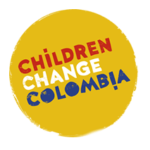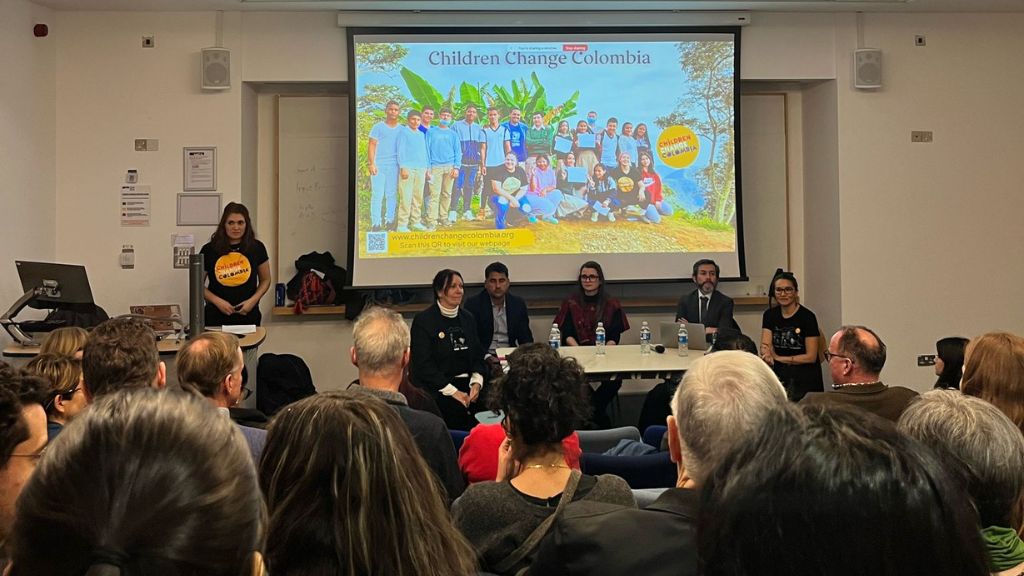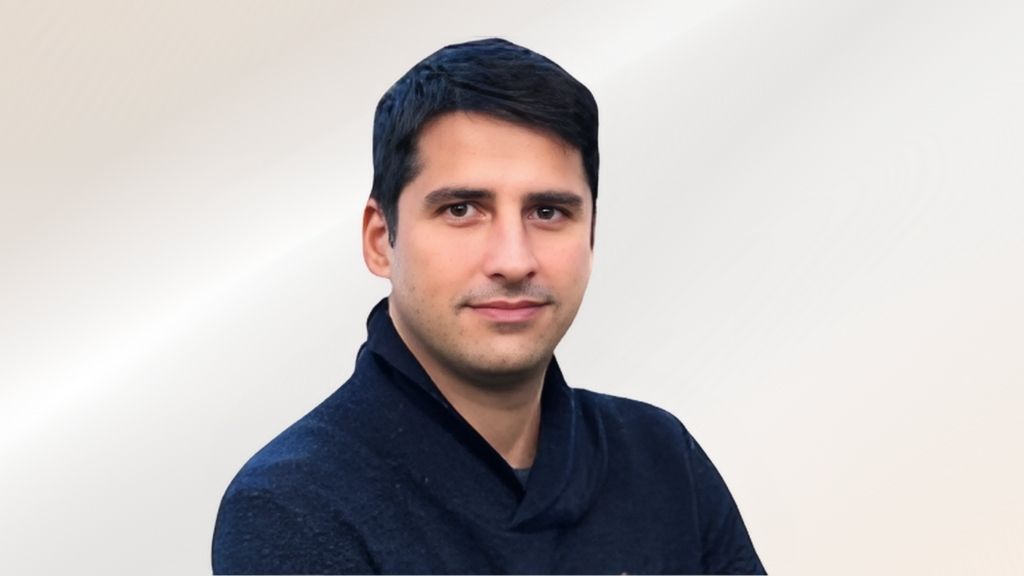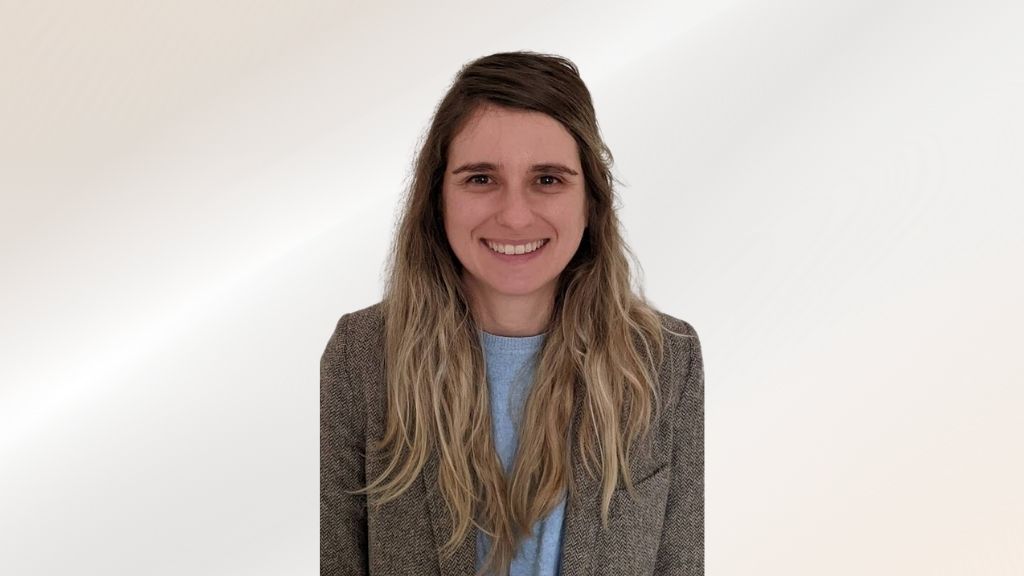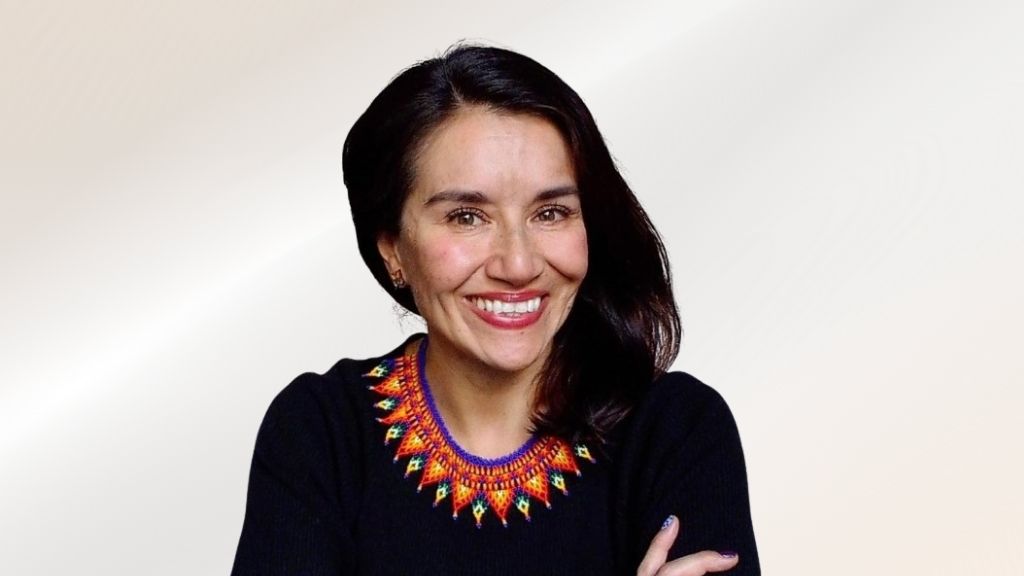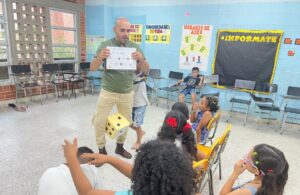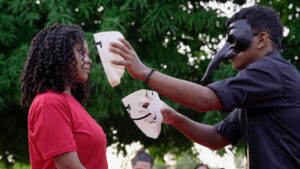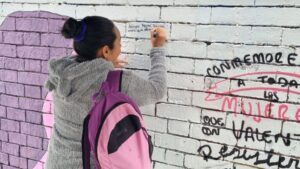The panel provided an insightful conversation on the challenges and opportunities for peace in Colombia, featuring experts in the field. Academics and field workers presented findings from their research and projects related to conflict and peace in Colombia.
The session was opened by Dr. Eleanor F. Woodhouse, Director of the MSc in Public Policy of the Department of Political Science and School of Public Policy at UCL, and included the presentation of the project Paz A la Mochila – an innovative peace-building project that fosters resilience and understanding among Colombia’s youth.
Check out the talks from the speakers
The Unintended Consequences of the War on Drugs: Eradication and Armed Conflict Violence in Colombia
Dr. Luis Schenoni discussed the impact of coca production on violence in Colombia, emphasizing the ineffectiveness of aerial spraying and its unintended consequences. He explained that Colombia remains the world’s largest coca producer, with record-high production levels since 2020. He highlighted that aerial spraying with glyphosate, suspended in 2016 due to health and environmental concerns, has not reduced violence but instead fueled conflict, particularly involving paramilitaries and criminal organizations. Additionally, he pointed out the harmful effects of aerial spraying on health, deforestation, and water pollution.
The wars on drugs in Colombia and Mexico
Estefania Dominguez, PhD Candidate at Leeds University, focused on the relation between drug trafficking and conflict in Colombia. Drawing from her experience with the UN Verification Mission in Colombia, she discussed the influence of the US on Colombia and Mexico’s drug policies, the challenges of crop substitution programs, and the unintended consequences of these policies, such as increased violence and health issues. She emphasized on the need for international organizations and core countries to rethink their drug combatting strategy to avoid them strengthening the cycle of violence with on going policies.
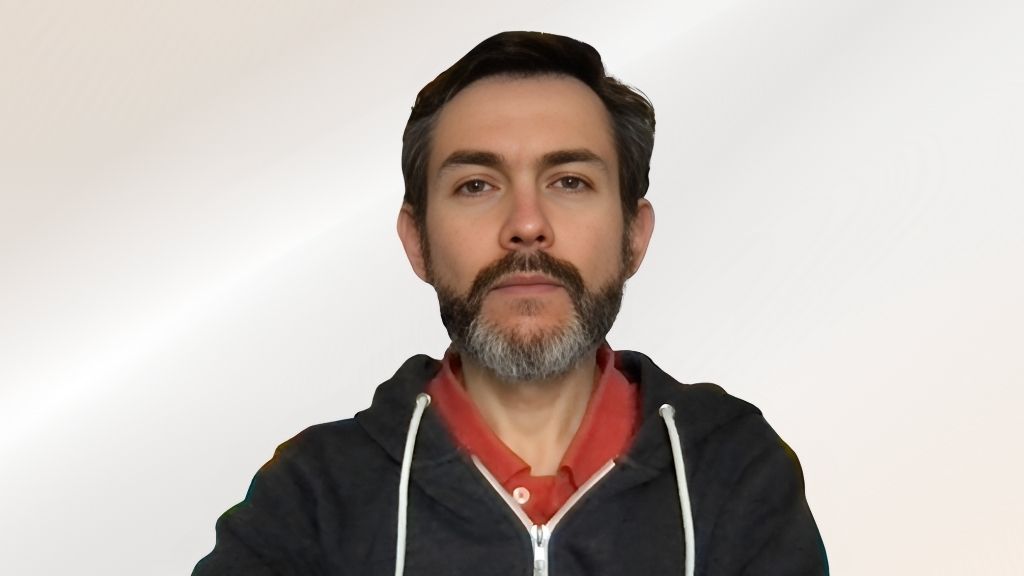
Regional Peace Co-construction in Colombia: Progress from Negotiations with Comuneros del Sur
Dr. Andrei Gomez-Suarez, Research Associate at SOAS, shared his first-hand experience negotiating with the guerrilla group Comuneros del Sur. He discussed the innovative approaches taken in regional peacebuilding efforts, the challenges faced, and the key agreements reached, including a bilateral ceasefire, early mine action, and the destruction of weapons. He also highlighted the need for a civilian-led accountability mechanism and the importance of inclusive participation of civil society organizations in the peace process.
Pedagogical Practices for Childhood and Adolescence on Truth, Non-Repetition, and peacebuilding
Patricia Montenegro, Psychologist at Children Change Colombia, presented the findings of the first year of the PazA la Mochila project. She explained the project’s goal to disseminate educational materials about Colombia’s conflict and promote peace through workshops and community engagement. Patricia shared positive feedback from teachers and children who participated in the project, highlighting its effectiveness in promoting peace and understanding.
